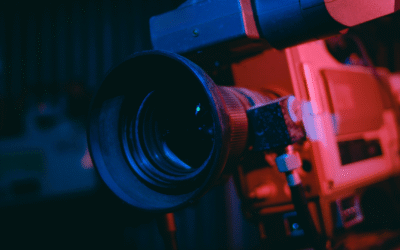Sure, it’s boring, but tax is super important for creative practitioners and arts organisations. It’s a weird combination of both boring and scary, but learning how it works can be empowering for you, and help you to help others.
Creative businesses and arts professionals are in an interesting position with regards to our overall tax situation, as many of us are individuals, small businesses, AND professional artists (which means we have a lot of different tax rulings about us). It’s super important to double-check all your supposed deductions with your accountant or directly with the ATO, as there is an awful lot of surprisingly grey area around some claims.
Here are some key things to think about when getting ready for your tax return this year! And remember, you can always watch our 2024 webinar all about tax. Our 2025 tax webinar is coming up on 24th June, complete with all the updates you need to know about. To register for it (it’s FREE) head to our Crowdcast Channel.
What is Assessable Income?
This usually means any kind of money associated with your professional work, including wages, money paid through an invoice, sales of products and services, and some Centrelink benefits. Even money that you get from a grant could be classified as assessable income, if it’s for your professional work. If you’re not sure how this affects your taxes, keep reading – learning how the tax system works will help you to maxinimise your deductions and reduce that naughty tax bill!
To find out more about assessable income, read the ATO website here.
What is a Tax Deduction?
If you buy things in order to achieve your assessable income, that expense could be classified as a tax deduction. That probably includes most of the things you have to purchase so you can continue to run your creative business, AND most of your project expenses as well.
You can check out the ATO TV’s webinars about the principles of income tax deductions that apply to all businesses (on the gloriously titled ATOtv).
Remember the three golden rules for claiming your business expenses:
- The money must have been spent on your business (not exclusively for a private expense like your groceries or a lovely new frock).
- If it is for a mix of business and private use, only claim the portion that is related to your business (this is called apportioning). There are tools on the ATO website to help you figure out the percentages.
- You must have records to prove your purchases – digital records are fine, and you can take a photo of your paper receipts.
For example, you can claim a deduction for a laptop if you bought it for your business—just claim for the proportion of business use (not private use) and keep your receipt. The percentage that you choose is up to you, but if asked you’ll need to prove why you chose this percentage. Most people base their percentage on use—for example if you use your laptop 80% of the time for business purposes, you can claim 80% of the cost of the laptop. You just need to keep any records to provide the percentage you’ve chosen.
What Can I Claim?
You can claim a deduction for most expenses you incur to run your business if they directly relate to how you earn assessable income. This is true for sole traders, partnerships, and companies—but the generosity of deductions will vary. You can find out more here:
- Tax Deductions – business.gov.au
- Common Deductions for the Creative Industries
- Performing Artist Tax Return and Deduction Checklist – H&R Block Australia
- 29 things you should not forget to claim at tax time – Arts Hub
- Tax deductions for graphic designers and art directors – Personal Tax Specialists
- Tax Guide For Musicians and Creative Professionals – Craig Allen & Associates
- Tax Deduction for Bloggers and Social Media Influencers – H&R Block Australia
- 10 Tax Deductions For Creative Professionals Often Overlook: Don’t Leave Money On The Table – Amplify
- Lesser known tax deductions for creative freelancers – Arts Hub
Occupation and industry specific guides from the Australian Taxation Office
Business or Hobby?
It’s important to understand the differences between a hobby and a business for tax, insurance, and legal purposes. Key questions to consider:
- Is the activity being undertaken for commercial reasons?
- Is your main intention, purpose, or prospect to make a profit?
- Do you regularly and repeatedly undertake your activity?
- Is your activity planned, organised, and carried out in a businesslike manner?
If you answered yes to most of these questions, you’re likely to be running a business, although it depends on your individual circumstances. This can be complicated, so make sure you talk to your accountant and work it out!
To get an answer specific to your circumstances, you can:
- Talk to a legal, accountant or business adviser in your area who can help you decide whether you’re running a business or a hobby.
- Get a private ruling from the ATO, which will provide an answer that protects you from penalties and interest.
Fancy reading the tax rulings?
If you’re curious about the root of all these rules and you have a spare couple of hours, you can find out all the original material here:
TR 2005/1 – Income tax: carrying on business as a professional artist
TR 95/20 – Income tax: employee performing artists – allowances, reimbursements and expenses
TR 98/14 – Income tax: employee journalists – allowances, reimbursements and deductions
We highly recommend the examples… “Jennifer has been painting for several years. She is employed as a public servant, but works on her art in her spare time…Jennifer does not make any concerted efforts to sell her artworks!”
And we never judge, so if you need to, also have a look at the Adult industry workers – income and work-related deductions also from the ATO. “Dan produces and directs adult movies. He decides to enrol in an advanced diploma of screen and media (film and television)…” You get the picture (that’s a real example btw)!
Curious about the GST?
GST stands for goods and services tax and is added to nearly everything you buy in Australia. If you’re a business, you may be required to register for and collect GST. Here are some handy ways to find out more in the least boring way we could find!
- Your quick guide to GST and BAS in Australia – download an e-book or read online. Courtesy of Xero.
- How GST works and when to register – a ‘fun’ video and helpful resources from ATO TV!
- ATO TV – yes, it’s true, the ATO has its own TV channel. Videos and webinars on a range of topics, accessible and in multiple languages too!
Time to get organised!
If you’re looking for an accountant that specialises in the creative industries, check out our Groovy Accountants. This free listing allows you to check them out—we don’t necessarily endorse them, but we do recommend you give them a call and find out more for yourself.
If you think it’s time to try out Cloud Accounting, there are lots of options including the more famous (and expensive) methods such as Xero and MYOB. We recommend Rounded, which is an Australia-owned small business that provides cloud accounting for sole traders and freelancers, with a mission to help creatives, You can try them for free for a month by clicking here! And you can watch a webinar about the platform here.
Go forth and conquer, you mighty tax champions. You got this!





0 Comments